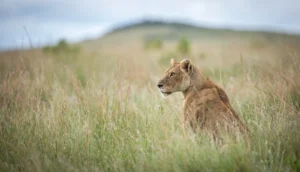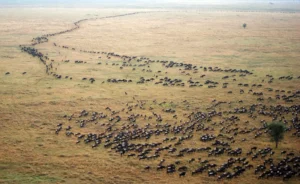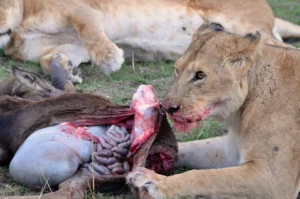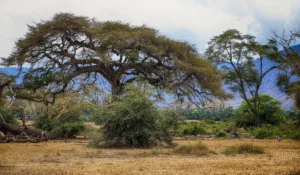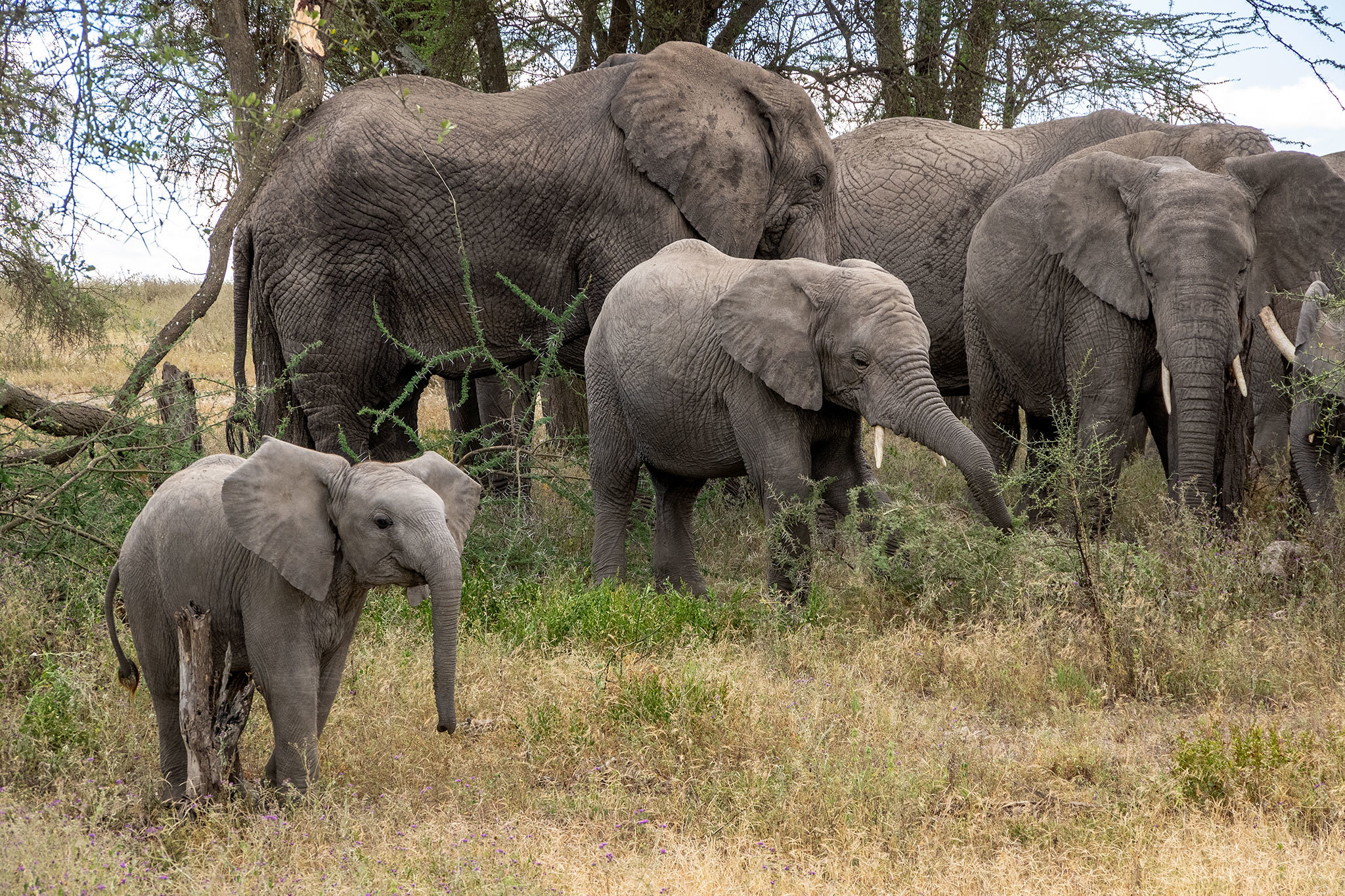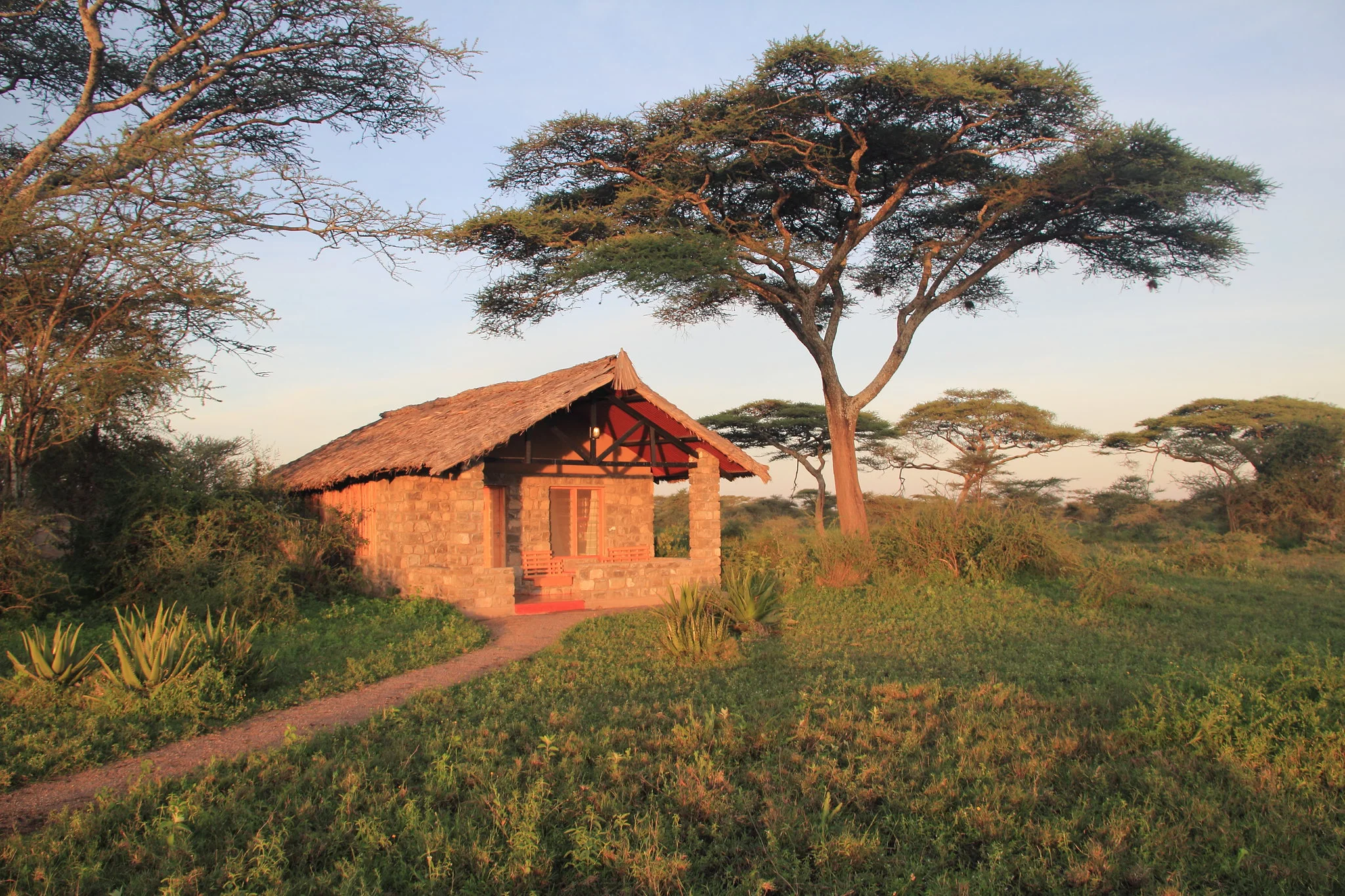Tanzania’s national parks are renowned for their stunning landscapes, diverse wildlife, and remarkable natural phenomena like the Great Migration. Among the many captivating aspects of these ecosystems is the complex relationship between predators and prey, including the behavior of lions as they hunt for food. In this article, we’ll delve into the fascinating world of lion hunting in Tanzania’s national parks and the vital role it plays in maintaining ecological balance.
Lions: Apex Predators of the Savanna:
Lions (Panthera leo) are apex predators in the African savannas and grasslands, including Tanzania’s national parks. They are social animals that live in pride, typically led by a dominant male.
The Hunt Begins:
Lion hunts are orchestrated events within a pride. They typically involve several lionesses working together to stalk and ambush prey. Lions are opportunistic hunters and have a wide range of potential prey species, including zebras, wildebeests, gazelles, and buffaloes.
Hunting Strategies:
Lions employ various hunting strategies depending on the circumstances. They may use teamwork to encircle and isolate a target animal, or they might employ stealth and camouflage to get as close as possible before launching an attack.
The Thrill of the Chase:
Lion hunts are awe-inspiring and intense affairs. The chase can be swift and explosive, as lions use their powerful bodies and sharp claws to bring down prey. The hunt showcases the incredible speed, strength, and agility of these apex predators.
Importance of Lion Hunting:
Lion hunting serves several vital ecological roles in Tanzania’s national parks:
- *Population Control:* By preying on herbivores, lions help control the population of these animals, preventing overgrazing and habitat degradation.
- *Balancing Prey Species:* Lions help maintain a balance among prey species. They often target weaker or older individuals, which can strengthen the overall health of prey populations.
- *Culling the Sick and Weak:* Lions select prey that is often sick, injured, or elderly. This natural selection process helps improve the gene pool of prey species.
Sustainability and Conservation:
Lion hunting, when occurring in a natural and balanced ecosystem, contributes to the sustainability of the entire ecosystem. Conservation efforts in Tanzania focus on maintaining healthy lion populations and protecting their habitats.
*Challenges and Concerns:*
While lion hunting is a natural part of the ecosystem, human activities, such as habitat destruction and poaching, pose significant threats to lion populations. Conservation organizations and national park authorities work tirelessly to combat these challenges and ensure the long-term survival of lions in Tanzania.
Lion hunting for food in Tanzania’s national parks is a captivating and essential aspect of the ecosystem’s delicate balance. These apex predators play a crucial role in maintaining healthy prey populations, preventing overgrazing, and promoting the overall vitality of the savanna ecosystem. While witnessing a lion hunt is a thrilling experience for safari-goers, it’s important to remember the significance of these interactions in the natural world and the need to protect these magnificent creatures and their habitats for generations to come.

